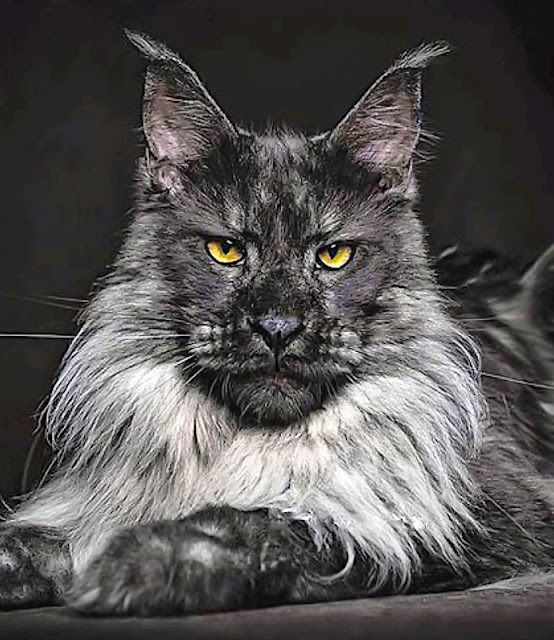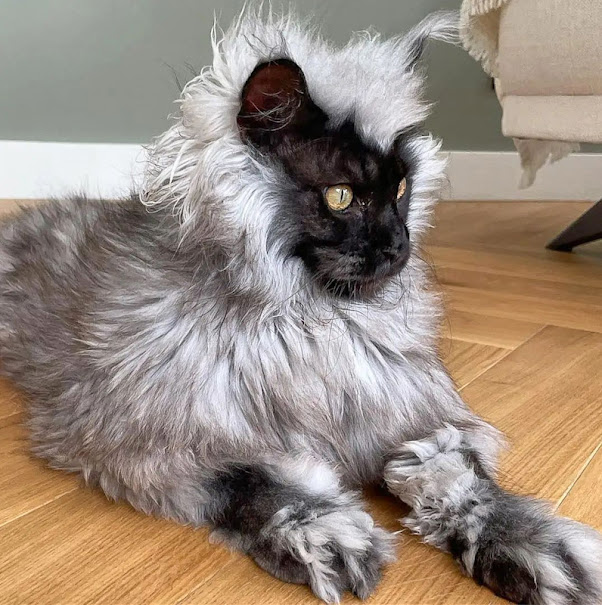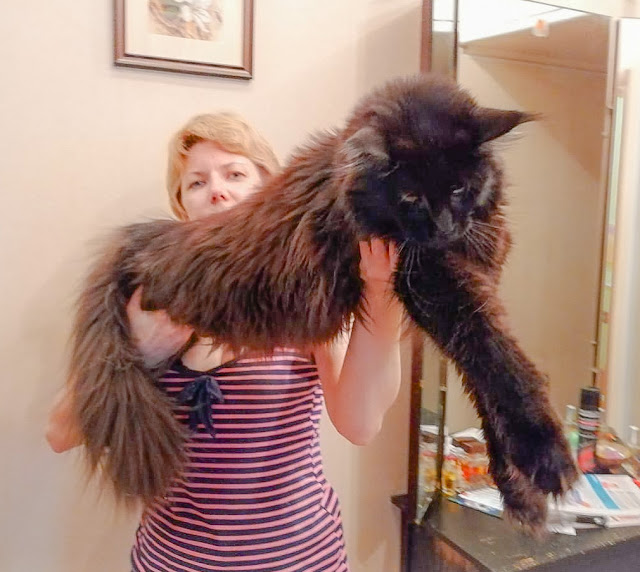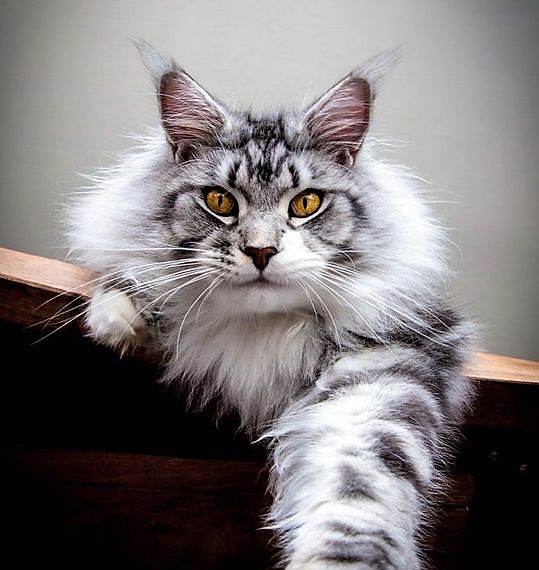Maine Coons with HCM more likely to be older, neutered, heavier, more obese and have longer humeri bones
Compared with Maine Coon cats without HCM, Maine Coon cats with echocardiographic evidence of HCM were found to be older, more likely to be neutered, heavier and more obese and had longer humeri. These are the findings of a study which I found interesting. I'm going to try and pick out the interesting bits and write about them in layperson's terms. If you're interested you can read the study yourself by clicking on this link.
 |
| MC of 2 halves. She has a facial blaze (sharp demarcation). Photo: Pinterest. |
What the scientist did was do compare Maine Coons with HCM and those without HCM. We know that this is an inherited condition in Maine coon cats. But it seems to me that they were looking at other factors which they describe as "environmental modifiers of genetic predisposition to HCM". In other words Maine coon cats inherit HCM but are there any other environmental factors with influences how HCM progresses in Maine coon cats? This is my interpretation.
For the sake of clarity, the humerus (in plural 'humeri') is the bone that extends from the shoulder to the elbow in the forelimb of the cat.
The scientists screened 85 Maine coon cats between July 2010 and April 2011. They had to exclude two cats because they had congestive heart failure and a further 22 cats were excluded for various reasons including cardiac abnormalities or because it wasn't clear whether the cat had HCM or not.
16 of the cats had HCM. Most of the cats were owned by breeders (83%). That's interesting. I wonder whether they mean that they were breeding cats (studs and queens) or whether they were cats to be sold. I don't know.
- Cats with HCM were significantly older compared to cats without HCM. Those with HCM had an average age of 9.1 years while those without HCM had an average age of 3.2 years;
- There was no significant difference between genders i.e. it doesn't matter whether the cat is female or male;
- A significantly greater proportion of Maine Coon cats with HCM were neutered compared with those that were not neutered;
- The age at which the cats were neutered did not have any impact on the development of HCM;
- The cat's blood pressure did not make any difference to whether the cat had HCM or not;
- Cats with HCM had a significantly higher median murmur grade compared with the control cats;
- Those cats with HCM had "significantly higher median body weights and abdominal circumferences" compared to those cats without HCM. In other words they were heavier with bigger bellies;
- And those cats with HCM had longer humerus bones than those without HCM;
- The average length of the fourth and fifth vertebra was not significantly different between the groups i.e. between HCM positive and HCM negative cats;
- HCM positive cats had higher serum glucose than HCM negative cats;
- The concentrations of cholesterol and triglyceride were not significantly different in HCM positive and HCM negative cats;
- HCM positive cats came from litters that were significantly smaller than HCM negative cats.;
- As judged by their owners, subjectively, HCM positive cats were larger at six months of age compared HCM negative cats. And they also weighed more at one year of age.
They concluded in their discussion section of their study that: "Maine Coon cats with echocardiographic evidence of HCM (HCM+) were older, more likely to be neutered, heavier and more obese, and had longer humeri compared with cats without HCM."
They said that the study has limits and limitations. They list those limitations. I will let you read them if you wish by going to the study at your leisure. It's a long read as usual and it is quite complicated.
They also concluded that the information gathered supported the hypothesis that the early growth and nutrition, larger body size and obesity may be environmental modifiers to the Maine Coon's genetic predisposition to HCM. They recommended that further studies should be carried out.










Comments
Post a Comment
Please share your Maine Coon experiences.